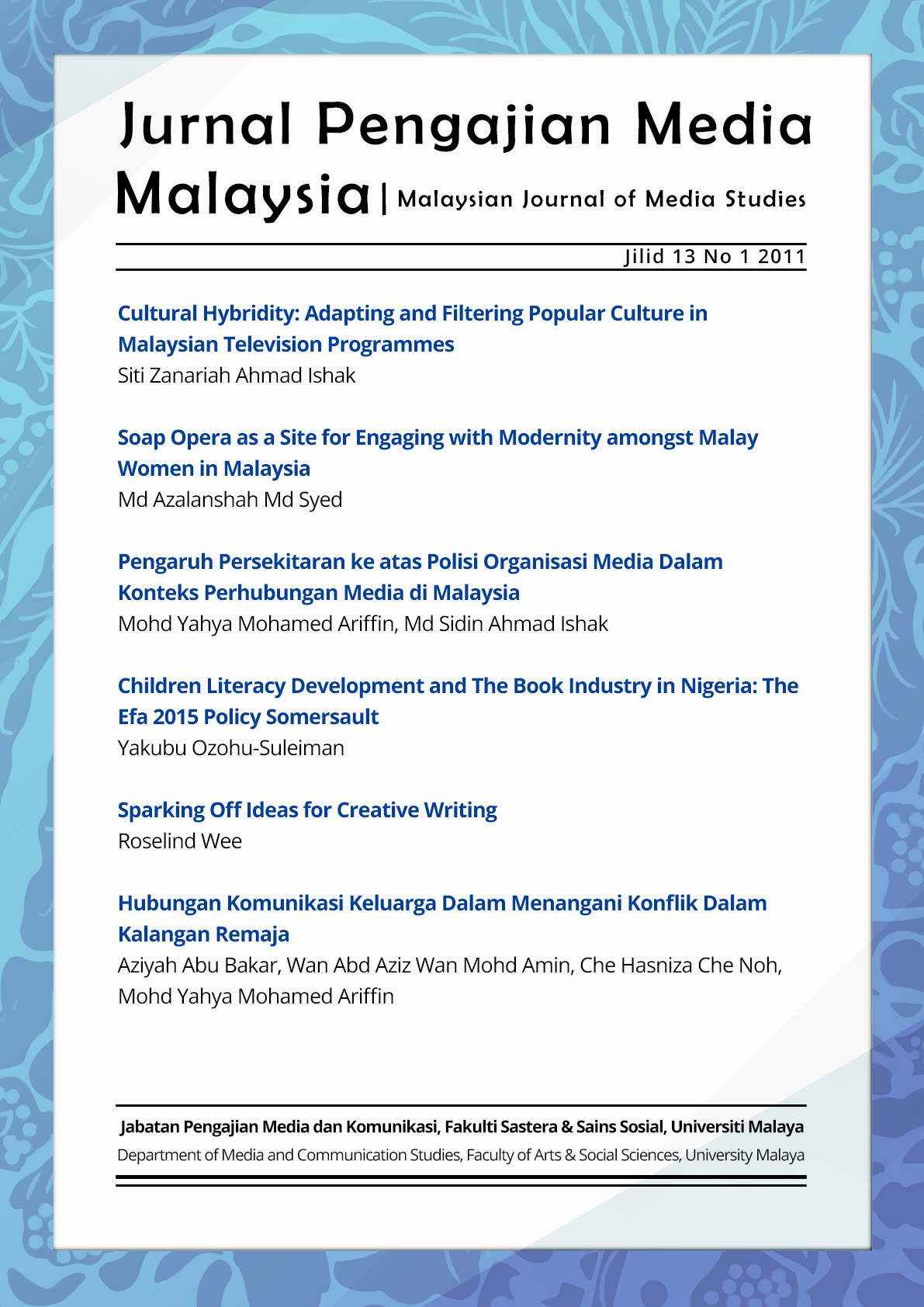Cultural Hybridity: Adapting and Filtering Popular Culture in Malaysian Television Programmes
Keywords:
Censorship, drama serials, hybridity, popular culture, adaptationAbstract
The view that culture is ever changing is now widely accepted. The localisation of foreign culture becomes significant due to the presence of global mass media. This paper aims to explore the concept of hybridity in popular culture and also to demonstrate the way Malaysian government promotes hybridisation of popular culture in the television programmes. Hybridity relates to the process in which culture is changed through adaptation, reinforced by deterritorialisation, and conditioned by a set of unequal power relationships. Hybridisation in cultural industry represents the interaction of local cultural agents with global forms to produce dynamic localised cultural commodities. In Malaysia, adaptation and censorship are two significant ways of hybridisation which is enforced and monitored by several government and non-government bodies. This study maintains that while hybrid culture benefits subaltern group, hybrid process is being used by dominant sectors in Malaysia to maintain their political hegemony.
Downloads
Downloads
Published
How to Cite
Issue
Section
License
Copyright (c) 2011 Jurnal Pengajian Media Malaysia

This work is licensed under a Creative Commons Attribution 4.0 International License.






